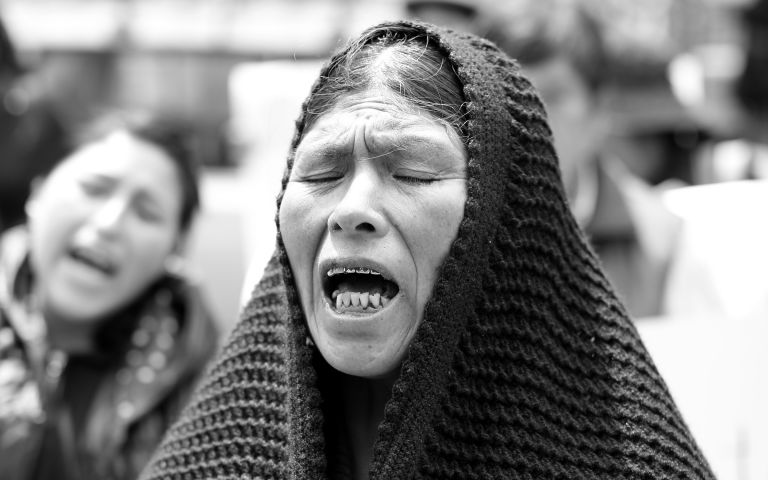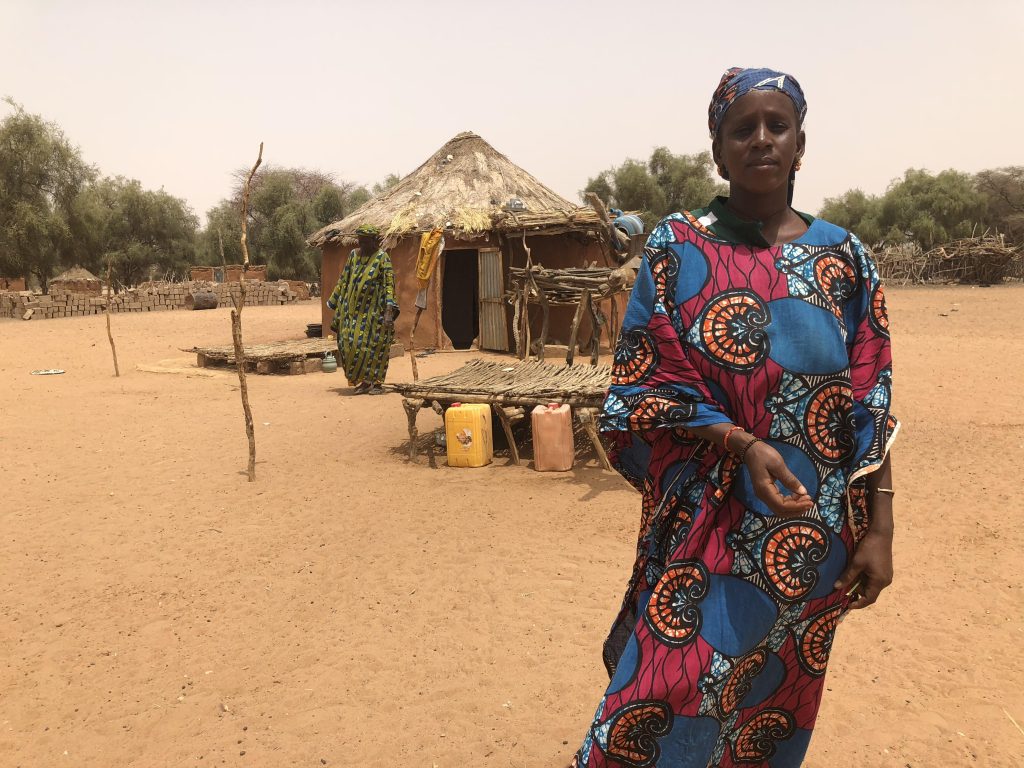
October 22, 2011, is a day she will never forget. It is the day she lost her husband and firstborn son following a wave of violence pitting two communities in Isiolo. The conflict left at least 10 people dead and more than 20 houses torched.
On a fateful morning, Elizabeth Ibrahim Hechesi was making breakfast for the family at their home in Kambi Garba in Burat ward as her husband Romanus Losike, an employee of Action Aid, prepared to leave for fieldwork in Oldonyiro about 150 kilometres away.
Minutes later, however, he changed his mind as he reportedly never wanted to miss the Sunday service the following day. Little did the wife and children know they were spending the last days with him. The family also hosted seven destitute children.
As they took breakfast, they heard gunshots from a distance, spreading fear and panic. The mother of five suggested that they flee for safety but her husband was hesitant, saying they had not wronged anyone and there was no cause of alarm.
The clashes over control of grazing land and water resources had started weeks earlier in neighbouring areas of Kilimani and Mulango among others, but it never dawned on the family that they could become victims.
“The shooting continued and the gunshots that we had heard from a distance became so real. We knew all was not well,” says Ms Hechesi.
They hurriedly moved the children out of the house and hid them in a nearby bush but the husband and Simon Lomoe, their firstborn son who was sitting KCSE exams at St Pauls Kiwanjani Secondary, insisted on staying back to safeguard their properties as the mother watched over the siblings.
The armed attackers set ablaze their house where the husband and son were hiding. Mr Hechesi was shot dead while struggling to get out while her son succumbed to burns as he underwent treatment at a local hospital.
Succumbed to burns
“I was shocked to find my husband’s body lay outside the house that was in flames. With assistance from my neighbours, we rushed my son to hospital but he succumbed to the burns. It was my lowest time in life,” says the 46-year-old during an interview with the nation. Africa.
With tension still rife in the area, a Good Samaritan dressed Ms Hechesi in the rival community’s attire so that she could comfortably manoeuvre through the villages for safety. A man only identified as Rashid hosted her and the children.
Ms Hechesi is the only one who lost loved ones in the village where close to 30 houses were set ablaze by the attackers.
Four months before the clashes, 10 people had been killed and 2,000 others displaced in three days fighting between two communities at the Isiolo-Samburu border over grazing land.
The spate of attacks that also affected Kambi ya Juu area was so real that the then Vice President Kalonzo Musyoka, asked leaders to unite the warring communities to avert constant raids and killings that were a stumbling block to development in the region.
And while authorities never shared the total number of those killed and injured during the attacks that went on for more than four months, residents said dozens were killed.
For instance, in February 2012, hundreds were displaced and dozens killed in a spate of attacks and counter-attacks, including three farmers who were gunned down at Gambella area near Meru-Isiolo border on February 13, while harvesting tomatoes. Three others were killed the following day at Kambi ya Juu area.
Following the incidents, about 15 houses were burnt down and more than 1,000 people from Turkana community fled for safety.
Fast forward, Ms Hechesi and her family were later hosted for three months by New Life Bible Church in Kulamawe, Isiolo in partnership with African Inland Church and Action Aid who provided them with clothes, food and personal effects.
Armed violence
They later relocated to Kambi ya Juu on the outskirts of Isiolo town where they have lived since then.
Having borne the brunt of insecurity and knowing that women and children suffer most when communities fight, Ms Hechesi started peace initiatives towards ensuring harmonious living between communities.
Armed violence and insecurity is overt in pastoral counties due to competition over resources prompted by environmental degradation.
The conflicts are also sparked by the proliferation of illegal firearms and the situation worsens during a dry spell when the natural resources become increasingly scarce and herders are tempted to use force to access them.
While it was initially difficult for women to lead peace efforts due to traditions, Ms Hechesi says men have rapidly accepted them and are playing a crucial role in peacebuilding and conflict management through community sensitisation and awareness.
“I have been passionate about building peace and leading peace initiatives. I really know how important peace is because I lost my husband and son due to fights,” Ms Hechesi, who has undertaken peace initiatives in Marsabit and Mai Mahiu in Nakuru County among others says.
The peace ambassador hails conservancies’ role in promoting peace among communities in Northern Kenya and specifically the involvement of women in peace efforts.
Stolen livestock
Through the Integrated Management of Natural Resources for Resilience in Asal counties programme consortium (Imara), Northern Rangelands Trust in 2020, recovered 2,400 stolen livestock and thwarted 22 planned attacks in Isiolo and Samburu assisted by peace ambassadors.
“We have networks of women in the conservancy who reach out to other women at the grassroots in peace management for realisation of growth and development,” she adds.
Through economic empowerment programs by conservancies, young men have stopped stealing livestock and are now engaged in decent and productive activities.
Swedish Ambassador to Kenya Ms Caroline Vicini toured the region and Ms Hechesi was given a chance to address residents, who had gathered at Kalama Community Wildlife Conservancy in Samburu, where she stressed on the need for residents to live in harmony.
“I am a victim of ethnic violence and I am committed to making the relationship between Isiolo communities and neighbouring counties better for development to be realised,” Ms Hechesi then said.

